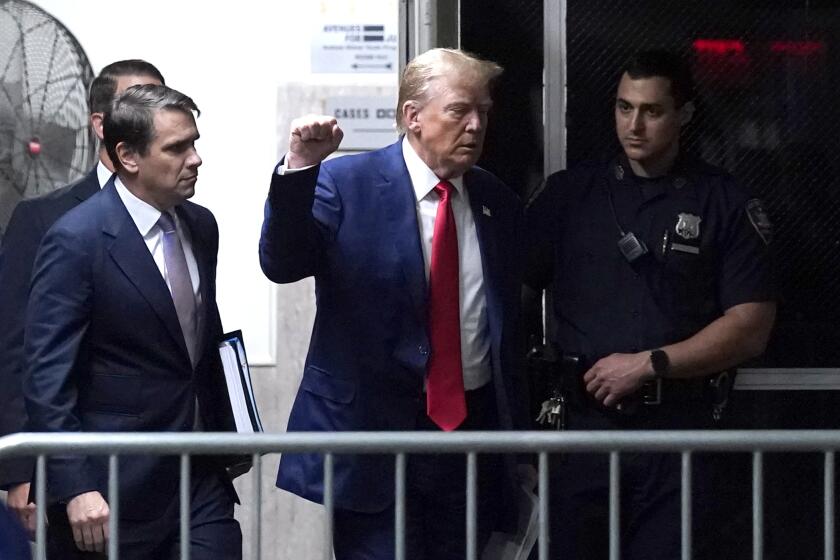Uneven Record on Africa
President Clinton deserves much credit for putting Africa on the map of U.S. foreign policy. He has pushed for an international plan to write off the poorest countries’ debt and battled for legislation to open U.S. markets to African imports. He went to Africa in 1998 and is going again this weekend. The president has some unfinished business there.
The administration has a decidedly mixed record in trying to broker peace agreements to settle civil wars on the continent. Clinton now is repeating his past mistakes, this time by prevailing on Burundi’s Hutu rebels and its Tutsi-dominated army to sign a peace accord during his visit. The 7-year-old civil war in East Africa has claimed more than 200,000 lives and displaced more than 1.2 million people, but the warring factions are not ready to agree to a cease-fire, much less sign a peace deal. As Angola, Congo and Sierra Leone in recent history clearly show, peace agreements before their time only raise false hopes and legitimize anti-government insurgencies.
The benefits of Clinton’s economic policies toward Africa will not be seen until the International Monetary Fund’s debt forgiveness plan is implemented, the trade bill takes effect and contributions from foreign nations start filling up the newly created World Bank trust fund to help battle AIDS.
In a significant new focus for Washington, the administration has also placed heavy emphasis on development in Africa, recognizing that reforming national economies, such as Nigeria’s, can create markets in which U.S. companies can find business. That’s better that the old, ineffective practice of pouring in aid, and the overall effect is to offer greater economic cooperation with countries that make progress on democracy and economic reforms.
It is, regrettably, on the political front that the administration has shown the same mixture of expediency and naivete that marked its Cold War predecessors. It brokered a peace agreement in Sierra Leone that allowed a tin-pot warlord to carry on his murderous anti-government campaign and backed a peace deal for Congo that has done nothing to diminish the violence. Now it is doing it again in Burundi, pushing the warring parties into a peace agreement neither side wants.
Ironically, to make room for Monday’s signing ceremony in Arusha, Tanzania, the staff of the international court set up to punish men convicted of atrocities in Rwanda is being kicked out of the premises, a bad omen on an often star-crossed continent.
More to Read
Get the L.A. Times Politics newsletter
Deeply reported insights into legislation, politics and policy from Sacramento, Washington and beyond. In your inbox three times per week.
You may occasionally receive promotional content from the Los Angeles Times.






